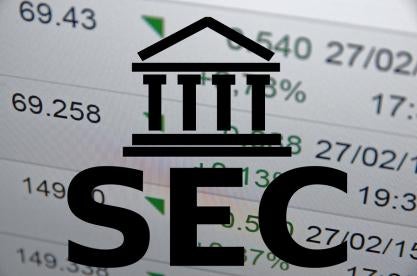As discussed at length in my October 29, 2020, blog post, “Keeping Securities Disclosures in the Pink: Amendments to SEC Rule 15c2-11,” the U.S. Securities and Exchange Commission (‘SEC”) on September 16, 2020, adopted amendments (the “Amendments”) to its Rule 15c2-11 under the Securities Exchange Act of 1934, as amended (the “’34 Act”) which governs how broker-dealers may participate in trading markets for unregistered (not listed on a securities exchange such as the New York Stock Exchange or NASDAQ; and not necessarily registered with the SEC) securities (“Unregistered Securities”). Both the Proposing Release concerning the Amendments and a separate September 16, 2020, Statement by Commissioner Hester Peirce contained a discussion of the possibility of creating an “expert market” (“Expert Market”) whose participants could provide quotations for and execute trades in Unregistered Securities without complying with all of the newly adopted (and constraining) requirements of Rule 15c2-11. The Amendments became effective December 28, 2020, and (with one exception not relevant to this discussion) must be followed on and after September 28, 2021, i.e., broker-dealers have a nine-month period within which to become compliant.
Proposed Conditional Waiver to SEC Rule 15c2-11
In response to the SEC’s discussion of allowing an Expert Market to develop, OTC Link LLC, a wholly-owned affiliate of OTC Markets Group Inc., submitted a waiver request to the SEC for certain parts of the Amendments to allow the creation of an Expert Market for certain Unregistered Securities. That request proposes that the SEC Rule waiver be conditioned on the implementation of a number of requirements and restrictions generally designed to prevent the general public from gaining access to the Expert Market and supervise the Expert Market to identify and deter abusive activities. The conditions are focused on three primary concerns:
-
Who may participate in the Expert Market
-
What types of securities may be traded on the Expert Market
-
How the Expert Market is operated and overseen
The SEC, in a 25-page Release, Number 34-90769, issued December 22, 2020 (the “Release”), lays out in detail the conditional waiver as proposed by OTC Link LLC accompanied by at least 13 assertions by the SEC as to what the SEC “preliminarily believes,” clearly underscoring the explorative nature of the proposal. The SEC then poses ten rather far-reaching questions seeking further input from affected parties. It must also be noted that the Chairman of the SEC resigned last week in connection with the coming change of Administration, so that the make-up of the SEC, including its majority, will be different in 2021. Accordingly, it is not possible to predict whether the Expert Market will ever come into existence or, if it does, how it might be shaped.
Nonetheless, it is instructive to review the structure of the Expert Market as proposed by OTC Link LLC. A key part of the Amendments is an information review requirement, which mandates a review of “current information” about an issuer that must be “publicly available” (both of which terms are defined in the Amendments) before a broker-dealer may post a quote of a price for the security or execute a purchase or sale of that security. A long-extant exception, known as the “piggy-back” exception, allowed one broker-dealer to rely on quotations posted by another broker-dealer, but that exception is significantly tightened by the Amendments, which require the second broker-dealer to complete so much of its own information review to determine that the issuer information is both current and publicly available. The proposal for an Expert Market would allow quoting prices for securities and executing transactions in securities where that information is NOT current and/or publicly available. The SEC observed that an Expert Market with the right conditions in certain circumstances “could enhance liquidity for sophisticated or professional investors in … securities” that would otherwise “trade” on the grey market (where no quoted prices are published or submitted in a quotation medium for buyers and sellers to access). The SEC expressed its interest in having such securities trade in an organized “place,” with regular oversight and the collection of information useful for both regulatory and market analysis reasons. The SEC noted that some “small companies seeking growth opportunities … might prefer to be quoted in” such a market. The SEC also stated that “investors in securities in the grey market may be more susceptible to fraud.” In any event, the SEC noted that an Expert Market MUST NOT be accessible by retail investors or the general public.
Letting Qualified Experts Expand the Pink to Avoid the Grey
The Expert Market proposed by OTC Link LLC would be a distinct market tier accessible only to subscribing participants, comprising broker-dealers, other “Qualified Experts” as defined in the proposal, and conditionally, the issuer itself (including its current directors, officers, and employees). Qualified Experts would include registered broker-dealers; qualified institutional buyers as defined in Rule 144(A); any Accredited Investor as defined in Rule 501(a) of Regulation D; and any qualified purchaser as defined in Section 2(a) of the Investment Company Act of 1940. All Expert Market participants would have to enter into contracts (called Market Data Distribution Agreements) with OTC Link LLC’s parent, OTC Markets Group, Inc., agreeing not to distribute any quotation or trading information to any third party, except pursuant to a similar agreement. Quotations published or submitted on the Expert Market would be clearly identified in a data feed controlled by OTC Markets Group, Inc., to which only subscribing participants and market data distributors would have access. OTC Link LLC also proposed that “foreign broker-dealers” as defined in Rule 15a under the ’34 Act be included in the class of Qualified Experts; the SEC seeks comment on whether that is consistent with the appropriate scope of the proposed conditional waiver.
The proposed Expert Market securities are those that lose eligibility for quotation and trading after September 28, 2021 (the date when compliance with the Amendments becomes mandatory), due to the lack of current and publicly available information; securities of a shell company; and securities issued in conjunction with a Chapter 11 bankruptcy plan that is confirmed by a Bankruptcy Court, where the security is exempt from registration with the SEC under the Bankruptcy Code. The security of an issuer whose securities are subject to a revocation of registration or a trading suspension order, and the securities of any issuer that OTC Link LLC identifies as “defunct” would be removed from the Expert Market. In connection with operating the Expert Market, OTC Link LLC would have to “establish, maintain, and enforce written policies and procedures that are reasonably designed to allow only permitted recipients to view, and to prevent the general public from viewing, quotations” on the Expert Market. OTC Link LLC would also have to “establish, maintain, and enforce policies and procedures to regularly surveil the use of the Expert Market data feed.” OTC Link LLC would also be expected to determine whether Expert Market participants were complying with their respective Market Data Distribution Agreements, and, if not, to deny that participant further Expert Market access or, if need be, refer the noncompliance to FINRA or the SEC. The proposal also sets out detailed recordkeeping requirements, including maintaining at least three years of written policies and procedures, information analysis procedures, and surveillance of quotation activity and distributions; all of which the SEC notes “will help facilitate the Commission’s oversight of the Expert Market.”
There follows, as noted above, ten detailed questions from the SEC requesting comment on:
-
Whether other type s of securities should be allowed to trade on the Expert Market
-
Whether the categories of allowed participants should be broadened or restricted
-
Whether there are other categories of persons (e.g., foreign broker-dealers) who should be able to see the Expert Market quotations
-
What costs there are for the creation and operation of the Expert Market and who should pay for them
-
How active the quotations on the Expert Market will be and how much the liquidity price discovery will be facilitated
-
Whether the proposed policies and procedures will work as intended
-
Whether the recordkeeping requirements are sufficient
-
Whether the safeguards against general public access are sufficient
-
Whether there should be additional conditions to the waiver
-
Whether the waiver should be for a set time period only so that a review before any extension or renewal would be required
The scope of the subject matters on which the SEC seeks comment underscores the preliminary character of the waiver proposal and also suggests that the proposal may be materially modified or even abandoned. Those comments are due 30 days after publication of the Release in the Federal Register.
Perhaps an Expert Market may be established, maintained, and enforced – or perhaps not.




 i
i
